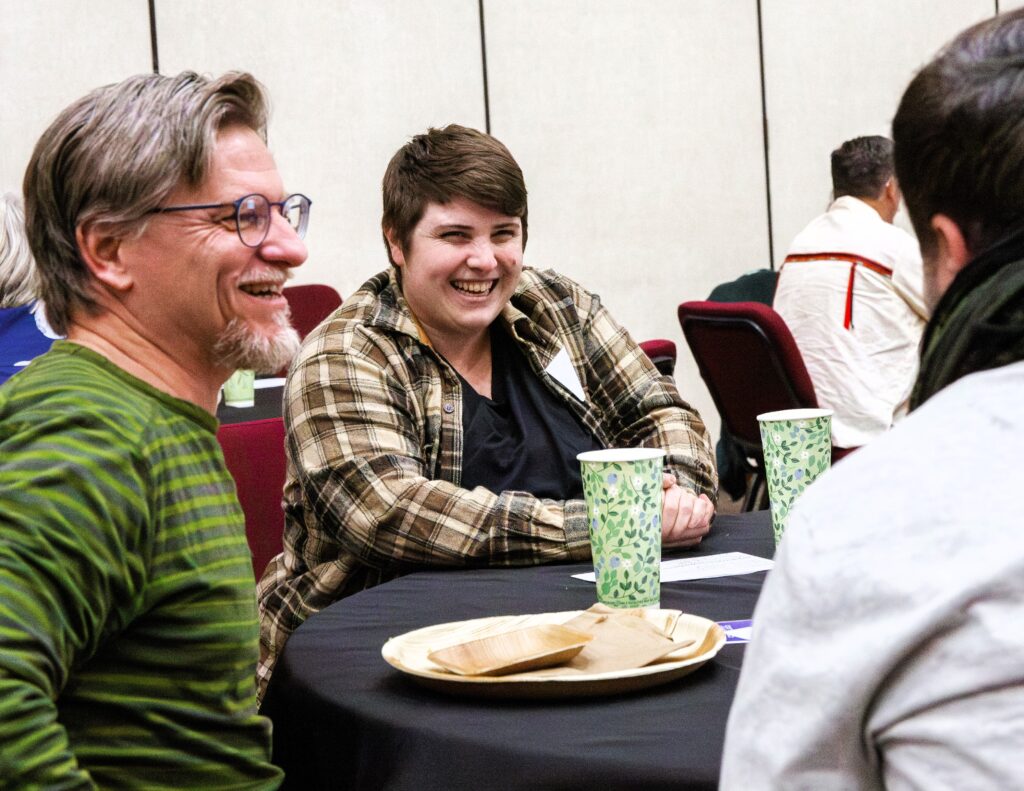
For many years, our mission statement at Paths to Understanding has been:
“Bridging bias and building unity through multifaith peacemaking.”
That statement has served us well. It has helped us focus on creating understanding between people of diverse wisdom traditions and countering religious-based bigotry. We will always do this work—it’s at the heart of who we are.
Today, we are announcing an important change.
Our mission statement must guide us into this broader work:
“Gathering Neighbors and Growing Trust.”
Why We Have Made a Shift
- Beyond Multifaith to Group-to-Group Up to 80% of people in Western Washington are not part of a religious or wisdom community. Yet they, too, long for connection and community. We want to invite everyone into the circle of belonging. That means moving from multifaith bridge-building to broader group-to-group bridge-building—bringing neighbors together across cultures, traditions, identities, and life circumstances.
- Organic Language We’ve often talked about “bridges,” but some of our partners—especially Indigenous leaders—have reminded us that this is a mechanical image. We want to use more organic language. Relationships are living things. They grow. They need tending. That’s why we’re using language about gathering and growing.
- The Crisis of Trust Social scientists tell us that trust in one another, in organizations, and in institutions is at historic lows. We believe that the repair of trust does not start in Washington, D.C., or even in Olympia. It begins in neighborhoods, towns, and cities—when people begin to know each other and then begin to act together for our common good.
We have a saying: “People grow at the pace of relationship.” Which also means: “People grow at the pace of trust.”
Honoring Our Roots
When Rabbi Levine and Father Treacy founded what would become Paths to Understanding, their mission was: “Bringing unity in the human family.” Their work began with interfaith relationships, but it was never only about that. It was a sign of something larger—the possibility of human beings choosing to know, respect, and trust one another.
We remain committed to interfaith engagement. We will continue to counter bigotry rooted in culture, tradition, or religion. But our divisions go beyond religion. We are separated by politics, economics, race, geography, and many other differences. But we don’t have to live that way.
Our new tagline offers a short statement about what we do:
“We bring Communities Together.“
By this tagline we mean:
- Local groups deepening their relationships within their group
- Local groups developing relationships with other groups
- Towns and neighborhoods coming together to build their future together
Next week I’ll write about how this mission statement is reorganizing and shaping our work – and the work we do with all of you.
